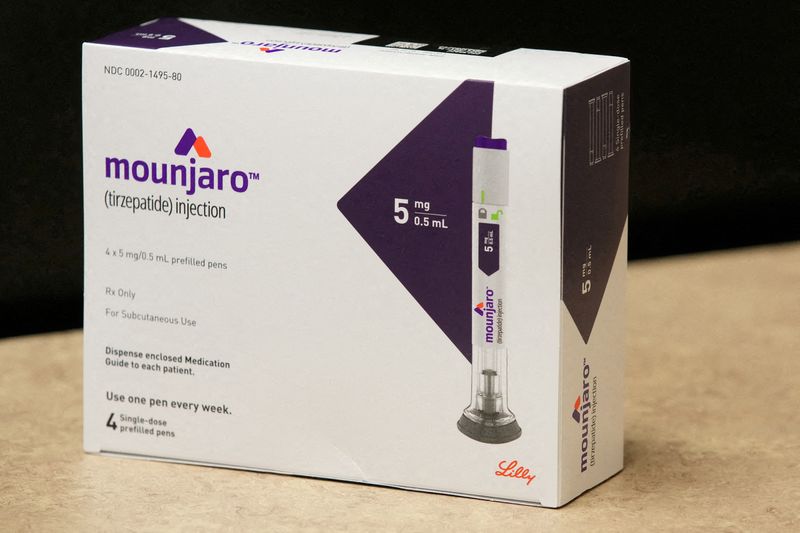(Reuters) - U.S. drugmaker Eli Lilly (NYSE:LLY) expects its blockbuster weight-loss drug to officially come out of shortage in the United States in coming days, Bloomberg News reported on Thursday, citing an interview with the company's CEO, David Ricks.
Lilly's drug, tirzepatide, sold as Mounjaro for diabetes and Zepbound for weight management, will cease to be in shortage "very soon," CEO David Ricks said in an interview with Bloomberg in Paris.
The U.S. Food and Drug Administration's website lists some doses of Mounjaro and Zepbound as being in limited supply. Mounjaro has been on the FDA's shortage list since late 2022.
The health regulator said it has no further comments to provide beyond what is available on its drug shortages list, while Lilly did not immediately respond to a request for comment.
The agency generally assesses whether all backorders for the drug have been filled and supply is meeting or exceeding demand before removing a drug from its shortage list.
Lilly said in April that it expects supply of Zepbound to remain "quite tight" in the near and midterm as it ramps up capacity.
Eli Lilly and Danish rival Novo Nordisk (NYSE:NVO) are racing to increase production in a weight-loss drug market estimated to reach about $150 billion by early 2030s. Both the companies' obesity treatments belong to a class of drugs originally developed for diabetes known as GLP-1 agonists.
GLP-1 drugs have been shown to help patients lose on average as much as 20% of their weight, fueling unparalleled demand.

Novo makes the diabetes drug Ozempic and its weight-loss equivalent Wegovy.
Separately, Lilly reported earlier on Thursday that Zepbound helped reduce the risk of hospitalization, death and other outcomes for obese adults with a common type of heart failure.